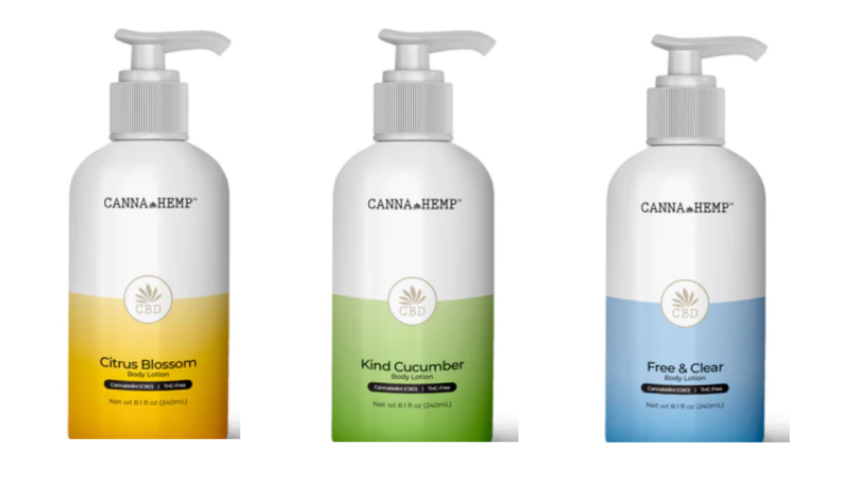Hemp cream has been gaining popularity as a natural alternative for pain relief and inflammation. With many people seeking non-chemical solutions to their health concerns, it’s no wonder that this plant-based product is garnering attention. In this blog post, we will explore the ins and outs of hemp cream, explaining how it works and how it can help those suffering from inflammation and pain.
What is Hemp Cream?
Hemp cream, sometimes referred to as hemp lotion, is a topical product that contains hemp oil as its primary active ingredient. Hemp oil is derived from the seeds of the Cannabis sativa plant and is rich in essential fatty acids, vitamins, and minerals. In addition to hemp oil, the best products also contain other natural ingredients, such as aloe vera, shea butter, and essential oils, to provide additional skin-soothing benefits.
It’s important to note that hemp cream is not the same as CBD cream. While both products are derived from the same plant, it contains little to no CBD (cannabidiol) – a non-psychoactive compound that interacts with the body’s endocannabinoid system. Hemp cream focuses on the benefits of hemp oil, whereas CBD cream relies on the therapeutic effects of CBD.
It is legal in most countries, as it contains only trace amounts of THC, the psychoactive compound found in marijuana. As a result, hemp lotion is non-psychoactive and safe for use by most people. However, it’s always wise to consult with a healthcare professional before trying any new products, especially if you have any existing health concerns or are taking medications.
The Science Behind Hemp Cream
Hemp oil interacts with the endocannabinoid system, which plays a crucial role in regulating various bodily functions, including pain perception and immune response. By influencing the activity of the ECS, hemp oil helps to alleviate pain and reduce inflammation.
The ECS is a complex cell-signaling system responsible for maintaining balance within the body. Hemp oil’s interaction with this system helps regulate the body’s response to pain and inflammation.
It contains high levels of omega-3 and omega-6 fatty acids, which are known for their anti-inflammatory properties. Additionally, hemp oil has analgesic effects, meaning it can help to relieve pain by reducing the intensity of pain signals sent to the brain.
Supporting Research And Studies
Numerous studies have explored the effects of hemp oil on chronic pain and inflammation, with promising results.
- Effects on Chronic Pain – Research has shown that hemp oil can be effective in reducing chronic pain, such as that caused by arthritis and neuropathic pain. A study published in the Journal of Experimental Medicine found that topical application of hemp oil could help to alleviate pain and inflammation in a rat model of arthritis.
- Effects on Inflammation – In another study, hemp oil was found to reduce inflammation in a mouse model of multiple sclerosis. The results suggest that hemp cream for inflammation may be a viable option for those suffering from inflammatory conditions.
Benefits of Hemp Cream
Pain Relief
Hemp cream for pain can be a natural alternative to traditional pain relief options, such as over-the-counter medications or prescription drugs. Some potential types of pain that hemp cream can address include:
- Arthritis
- Muscle soreness
- Joint pain
- Nerve pain
- Injuries
One of the advantages of using this is its natural composition, which reduces the risk of side effects commonly associated with synthetic pain relievers. It can be applied topically, allowing for targeted pain relief without entering the bloodstream, making it an attractive option for those seeking a more localized treatment.
Reducing Inflammation
Hemp cream for inflammation offers a natural and effective method for managing and reducing inflammation, which is often the underlying cause of pain. Hemp cream can help with various types of inflammation.
The best hemp lotion products often contain additional natural ingredients with anti-inflammatory properties, such as aloe vera or essential oils like lavender or chamomile. These ingredients work in synergy with hemp oil, enhancing the cream’s overall effectiveness in reducing inflammation.
How to Use Hemp Cream
It should be applied topically to the affected area, gently massaging it into the skin until fully absorbed. It is essential to follow the manufacturer’s instructions regarding the recommended dosage, as this may vary between products. Generally, it’s advisable to start with a small amount and gradually increase it if needed.
While hemp cream is generally considered safe, some individuals may experience mild side effects such as skin irritation, redness, or itching. If you experience any adverse reactions, discontinue use and consult with a healthcare professional. It’s also crucial to perform a patch test before applying the product to a larger area, especially if you have sensitive skin or a history of allergies.
Tips For Choosing The Right Hemp Cream Product
When searching for the best cream, consider the following factors:
- Look for products with natural ingredients and no artificial additives or preservatives.
- Check for third-party lab testing to ensure the product’s quality and purity.
- Read customer reviews to gain insight into the effectiveness and potential side effects of the product.
- Consult with a healthcare professional for personalized advice based on your specific needs.
Hemp lotion can be an effective natural remedy for pain and inflammation, offering a safe and targeted option for those seeking relief without relying on synthetic medications. With promising research and the growing popularity of hemp cream products, it’s worth exploring its potential benefits for addressing pain and inflammation. As always, consult with a healthcare professional before trying any new treatments, and choose a high-quality hemp cream product to ensure the best results.
Lynn Martelli is an editor at Readability. She received her MFA in Creative Writing from Antioch University and has worked as an editor for over 10 years. Lynn has edited a wide variety of books, including fiction, non-fiction, memoirs, and more. In her free time, Lynn enjoys reading, writing, and spending time with her family and friends.















